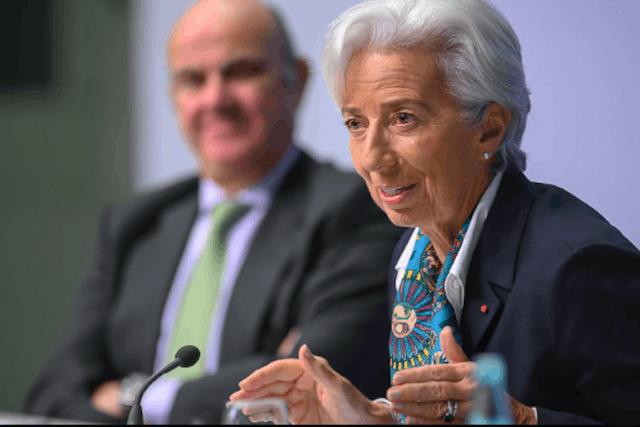The ECB president added that the body expected that those rates would be maintained at their present or lower levels until the body determines the inflation outlook converged to below 2%.
In a Thursday press conference about the decisions, she added that the ECB’s new strategy would be presented at the conclusion of the strategic review--its first in 16 years, and second in its 20-year history--expected by end-2020. Part of this review will include looking at the effects of the low interest rates, which Sweden notably did away with at the end of 2019. “Every country and region has its idiosyncrasies,” Lagarde added.
Although euro area growth outlook is “tilted to the downside”, with vulnerabilities in emerging markets and protectionist tendencies globally, there is less uncertainty surrounding issues such as Brexit and trade wars. Lagarde said she “took some comfort” in the preliminary results of the meeting between US president Donald Trump and EU commission head Ursula von der Leyen as well, from which she hopes will allow both sides to continue positive strides forward.
Concerns still exist around dampened investment growth and the weak manufacturing sector, but Lagarde said the governing council would be ready to “adjust all instruments as appropriate” to ensure the inflation outlook moved forward.
The ECB has stated its strategic review “will encompass quantitative formulation of price stability, monetary policy toolkit, economic and monetary analyses and communication practices” and involve a wide range of stakeholders.
